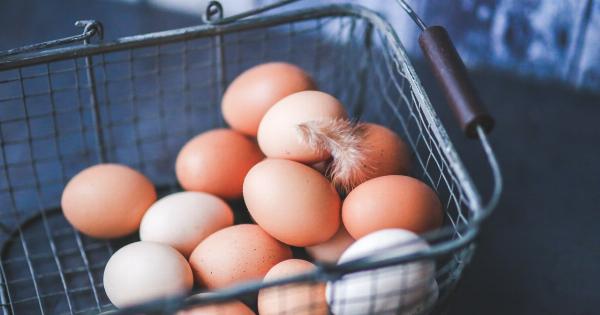Cholesterol is a waxy, fat-like substance found in the cells of our body.
While our body needs cholesterol to build healthy cells, produce Vitamin D, and produce certain hormones, having high levels of bad cholesterol, also known as LDL cholesterol, can increase the risk of heart disease and other health issues. One way to manage your cholesterol levels is by being mindful of your diet.
1. Fried Foods
Fried foods are often cooked in unhealthy oils that contain trans fats, which can quickly raise your LDL cholesterol levels. Foods like french fries, fried chicken, onion rings, and fried doughnuts should be consumed in moderation or avoided altogether.
Opt for healthier cooking methods, such as baking, grilling, or steaming instead.
2. Processed Meats
Processed meats like sausages, bacon, and hot dogs are often high in saturated fats and sodium. These foods not only raise your LDL cholesterol levels but can also increase your risk of heart disease and other ailments.
It’s best to limit your consumption of processed meats and opt for lean protein sources like chicken breast, turkey, fish, or legumes.
3. Red Meat
While red meat can be a good source of protein, it’s important to choose lean cuts and consume it in moderation. High-fat cuts of beef, lamb, and pork can increase bad cholesterol levels.
Try to limit your red meat intake and opt for leaner options like sirloin, tenderloin, or opt for plant-based protein alternatives like tofu or tempeh.
4. Full-Fat Dairy Products
Full-fat dairy products like whole milk, cheese, and butter are high in saturated fats, which are known to raise LDL cholesterol levels. Choosing low-fat or skim dairy products can be a better option for managing cholesterol.
Additionally, considering dairy alternatives made from soy, almond, or oat milk can also help lower cholesterol levels.
5. Fast Food
Fast food options are often packed with unhealthy fats, sodium, and added sugars. Regular consumption of fast food can significantly increase bad cholesterol levels and increase the risk of obesity and related health issues.
It’s best to limit or avoid fast food altogether and choose healthier options like homemade meals or restaurants that offer healthier choices.
6. Baked Goods
Baked goods like pastries, cookies, cakes, and muffins often contain unhealthy fats, refined sugars, and refined grains. These can significantly raise your LDL cholesterol levels.
It’s advisable to limit your intake of such baked goods and opt for healthier alternatives like whole-grain products, homemade versions, or fruit-based desserts.
7. Shellfish
While shellfish like shrimp, prawns, and scallops are low in fat, they are relatively high in cholesterol. For individuals with already high cholesterol levels, consuming shellfish in excess can be problematic.
However, for most individuals, the cholesterol content of shellfish should not be a significant concern, as they are also rich sources of Omega-3 fatty acids, which have heart-protective benefits.
8. Coconut Oil
Coconut oil has gained popularity in recent years, but it is extremely high in saturated fats. Saturated fats are known to raise LDL cholesterol levels.
While coconut oil can be included in moderation, it’s best to choose healthier cooking oils like olive oil, canola oil, or avocado oil for everyday cooking.
9. Sugary Beverages
Sugary beverages like soda, fruit juices, and energy drinks are high in added sugars. Regular consumption of sugary drinks can lead to weight gain, increased cholesterol levels, and an increased risk of heart disease.
Opting for water, unsweetened tea, or homemade fresh juice can help manage cholesterol levels more effectively.
10. Margarine and Shortening
Margarine and shortening are often used as alternatives to butter, but they can contain trans fats, which raise LDL cholesterol levels.
While there are now trans fat-free margarine options available, it’s essential to check the labels and choose options with the least amount of saturated fats and zero trans fats for better cholesterol management.

























